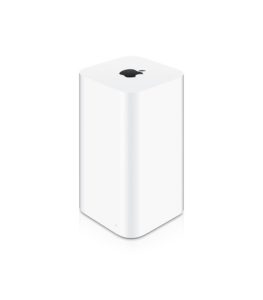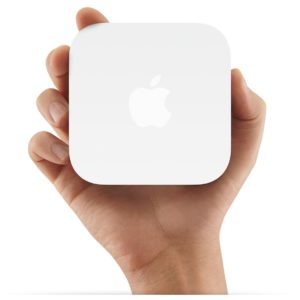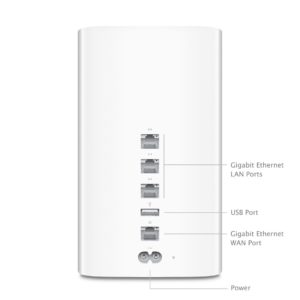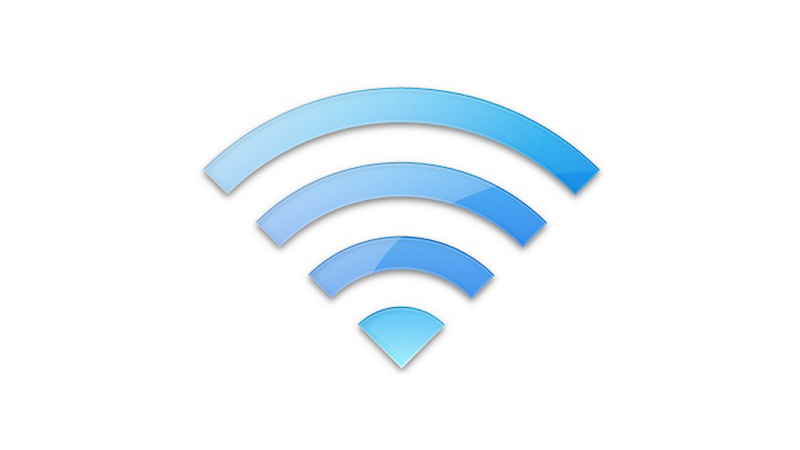
Way back in 1999, Steve Jobs, the showman that he was, unveiled a technology that would revolutionize computing as we know it. Standing on stage at the Macworld conference in New York, Jobs showed us his latest creation, the iBook. And in showing the iBook, the venerable CEO dazzled the audience, or at the very least me, when he proceeded to showcase the magic of wireless Internet, moving the iBook through a hoola-hoop to show off the lack of wires. Jobs called the technology “Airport.” At the time, the idea of surfing the internet without wires was new. Wifi was a mostly obscure technology. Yet, today, the technology is as ubiquitous as oxygen. Which is why it saddens me to announce that Apple is killing off Airport.
What is Airport?
Airport is Apple’s brand of wifi routers. From the AirPort Extreme to the smaller Airport Express, Apple managed to revolutionize the router in a way that many take for granted. Not only was Apple one of the first to commercialize the product, the company was able to win hearts and minds with innovations that few at the time could. The first product, the grey Airport router offered both an ethernet connection and a dail-up modem jack. Why a modem? It was the first to allow you to mobilize dial-up. This was revolutionary at the time as the install-base of broadband was next to nothing. Soon after, Apple would introduce other iterations, of their famous product. It wasn’t until the mid-2000’s, however, that Apple would find it’s footing.
Apple would go on to introduce technologies such as Time Machine, a backup utility that worked in conjunction with Apple’s router known as a Time Capsule. The Time Capsule router featured a built-in hard drive so that you could integrate it with the Mac and backup seamlessly. With the invention of Airplay, the Airport Express offered wireless music streaming on a device that looked similar to a MacBook wall adaptor. This product would also act as a portable wifi router while allowing consumers to connect a USB printer when printers weren’t even considering wifi integration. The Express is probably the utility knife of wireless routing. It’s sad to see it die in a world with few comparable products.
The best of the best?

Recently, Apple had turned the Airport Extreme into a fairly nice router. The company still offered the Time Capsule variations as well as the standard Airport Extreme. The latest iteration also upped the version to 802.11 AC with speeds up to 1.3 gbps. This coupled with the redesign of the Airport Express made Apple a formidable contestant in the wifi race. Unfortunately, competition would make the Airport an afterthought. Innovations in wifi technology brought us mesh networks or routers that are both competent and feature rich in categories that Apple neglected; technologies such as Mesh wifi that allow better reach of wifi signals in large homes as well as data and device management allowing for better control of devices in said network. The Express’ fate was just as doomed thanks to wireless printers as well as wireless speakers like Sonos and Apple’s own HomePod that rendered the audio components of the Express as obsolete.
So what killed Airport?

It’s not that Airport is a bad product. Far from it. But the writing has been on the wall for a while. Apple has stopped making the product a priority as they focus their shift on wearables and music. And the premium price tag that Apple commands for the product has left the door open for other companies to compete on the same price level while offering more. The Airport Extreme, for example, retails for $199 while the Amplifi HD, one of my favorite routers on the market, retails for $149 and offers the ability to expand the network with easy to set up repeaters. Most routers even offer the same IO as Apple. Basically, Apple is offering the same or less-than equivalent to other companies for a premium price. This, coupled with the fact that wifi is hardware agnostic, and there is little buy-in for anyone, especially Apple customers to buy an Apple router.
Still, it is sad to see the product go. I owned the second generation Airport when I bought my iBook G4 and I loved it. I still use my nearly 10 year old Airport Extreme 4th Generation to this very day with very little to complain about. But with the invention of mesh wireless technologies and needing more data control, my Airport is looking a little long in the tooth. And Apple must feel the same way. So in the end, Apple’s killing of Airport shows a willingness to acknowledge that the company doesn’t think they can advance things any further. It’s a sad end to a great product. RIP Airport.
![[Seeq].TV](https://seeq.tv/wp-content/uploads/2018/05/SEEQ-red-black-copy-3.jpg)



